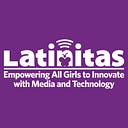By Briseida Diaz | Latinitas Magazine
For Prisca Dorcas, finding her identity was a challenge. Born in Managua, Nicaragua but raised in Nashville, Tennessee, this Latina who spoke at the SXSW panel on Latinx representation and identities remembers a childhood that left her doubting the value of her appearance.
She continuously heard from others that she was too brown, too hairy, or looked too much like “La India Maria,” a Mexican actress, comedian, and dancer who plays a stereotypical character with an indigenous background. This character frequently faces racial discrimination but undoubtedly resolves each situation with her comedy.
Dorcas recently graduated with her Masters from Vanderbilt University and considers herself a theologian, feminist, storyteller, and ethicist. She decided it was time to create acceptance for women of color and their bodies when she founded Latina Rebels in 2013, a space for young women to share their experiences and challenge the “binary expectations that are placed in Latina bodies and minds.”
In addition to writing content for Latina Rebels, Dorcas is working on a children’s book that celebrates boys and girls of color. After listening to Dorcas’ story, Latinitas Magazine was interested in learning more about the challenges she faced during her youth, and her advice to young girls trying to shape their own unique identity.
Q: What challenges have you faced growing up and how did you overcome those challenges?
A: “My parents are pentecostal pastors so I grew up really religious, and my parents didn’t think women should do anything but become wives eventually to a man.
I think that really scented a lot of how I understood my sexuality, how I understood my body, how much I didn’t like myself because there’s a lot of shame that the church teaches you around your voice — if you’re too outspoken you get shamed for that, if you’re too feminine you get shamed for that.
Going to a Divinity School for grad school, like a seminary, learning where all of that toxic theology came from and what the root of it was when they were teaching it to indigenous communities helped me overcome all of the [shame] because I was like, ‘Oh this is strategic brainwashing to keep us down.’
And reframing that instead of being like, ‘This is what God wants for your life.’ So overcoming that changed everything for me.”
Q: What is your advice to young Latinas trying to shape their identity?
A: “Stop listening to what other people tell you, because I had a lot of voices and a lot of ‘No’s’ in my life.
It made me tough but I should’ve had more “Yeses” and I had to be my biggest cheerleader. Don’t listen to [others], so just focus on what you want to do and what makes you happy, and it’ll be okay.”
About the author:
Briseida Diaz joined Latinitas Austin in 2016 and now serves as the Volunteer Coordinator. She is passionate about youth empowerment, education, equality, and cultural literacy. Visit Latinitas Magazine for more SXSW stories focused on diversity, female empowerment, tech, and more.
